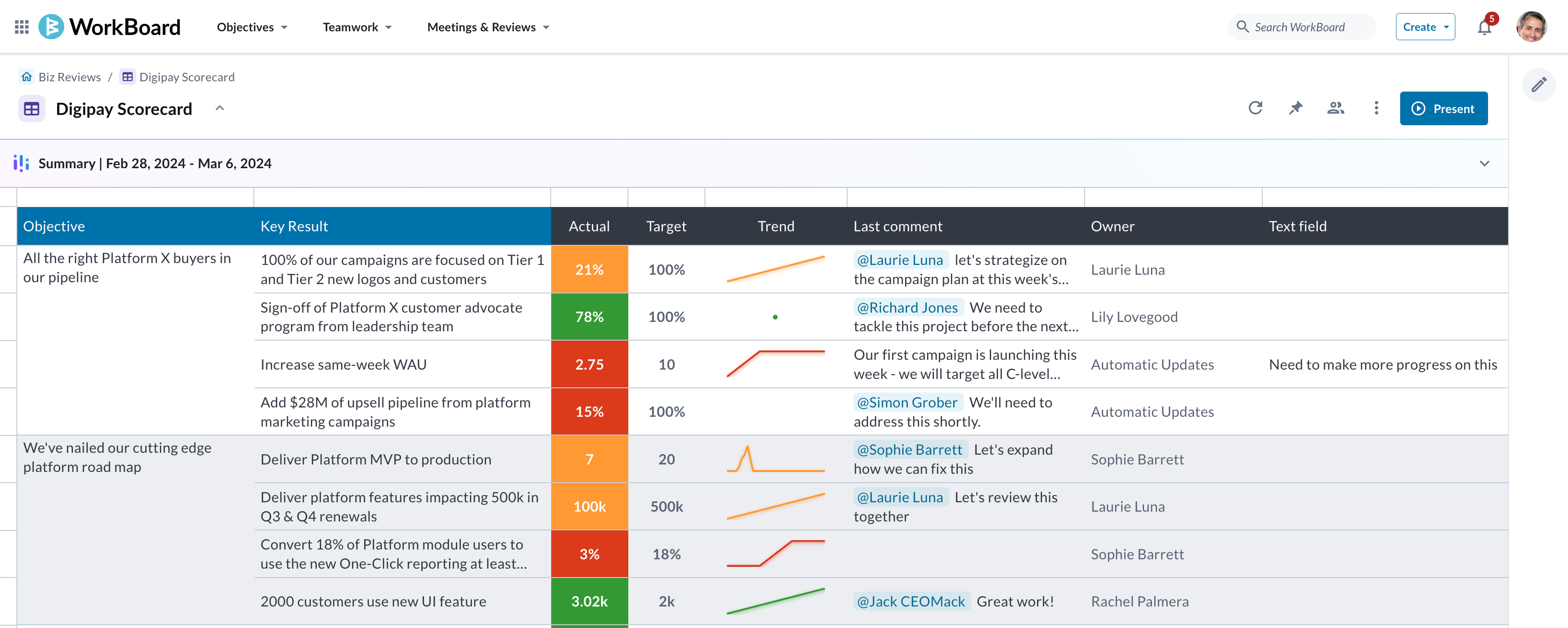I know what you’re thinking, I need to question everything, I need to be on top of every detail. Things are better when I am involved, I am in the position I am because I have the most experience on the ‘thing’.
While this may be true, it also doesn’t mean it is what is best for you or your team. And as a new, or newly promoted leader finding the balance can be hard.
Your actual role as a leader is not to manage everything in the universe, it is instead to build your team, translate the strategy, and then drive its execution by supporting the team, asking the right questions, and holding people accountable.
OKRs give you a way to do this, and in the process make you a better leader by:
1. Making you a better translator, and clarifying the direction.
OKRs give you a framework to effectively translate and communicate ideas to your team, and align your team with the other priorities in the business each quarter. They give you structure to decide which outcomes you are going to drive, and which you are choosing not to. Ultimately where you and your team will invest your scarce resources. By design, this results in the few most important, and highest priority outcomes to achieve this quarter. And therefore, where your team should invest their time. Now things come up, sometimes you have to adjust course, or pick up urgent items mid-cycle, great. But as a leader, it is your responsibility to weigh this against the work you have already committed the team to (the OKRs) and make a call on what comes off the list. The seemingly innocuous questions from your boss often cause huge whiplash. This is the same for you and your team. So next time you jump into Slack and write ‘Can you just…’ or ‘Have your thought about…’ remember that this is distracting and diverting attention from what you previously agreed as the most important items to work on. This may be necessary – but make sure it is.
2. Enabling you to drive week-to-week focus.
Once you are aligned on the outcomes (the OKRs), it’s time to actually achieve them. You do this by spending time on them. This starts with your time and attention as a leader and what you spend time on in your weekly team meetings. An effective way to do this is to run the meeting from a scorecard. The scorecard can list each key result, the actual and target, and an update. The conversation is then focused on the progress made since last week, for each key result. This gives the team space to experiment and report back but in the parameters of the result you are trying to drive, and with the time constraint of a weekly meeting – so nothing can ever get too far off track without the opportunity to course correct. Now is the opportunity to get out all your questions, without the need to be overly prescriptive. The one-off requests are inevitable, but making these as easy for your team to prioritize will help overall team morale and performance. Give space at the end of the team meeting to work through the list of actions (ideally in a view that everyone can see) and help the team prioritize them in relation to the OKRs. Now the team has a way, and the space to decide where their time goes, and if an actually urgent request hits their Slack, they know the difference and can treat it accordingly.

(Example scorecard in WorkBoard)
3. Connecting results to feedback and performance.
If the OKRs are where your team is investing their time, and what has the biggest impact on the success of the organization, then this is where you should also spend your 1:1 time. Connecting your feedback and performance conversations to the actual impact team members are having results in much more impactful and meaningful conversations. It also gives team members a sense of connection to the overall success, which shows up positively in your engagement scores. This common structure makes it incredibly simple for team members to focus on what is best for the company and what is best for them, instead of trying to decide between the two.
Using OKRs to set the direction, drive progress week to week, and capture and implement learnings lets you step up from the day-to-day, and instead focus on the outcomes the work is driving. Let your leaders be leaders, and let OKRs work for you. Set the direction, hold people accountable, and get out of their way. The results may surprise you.








